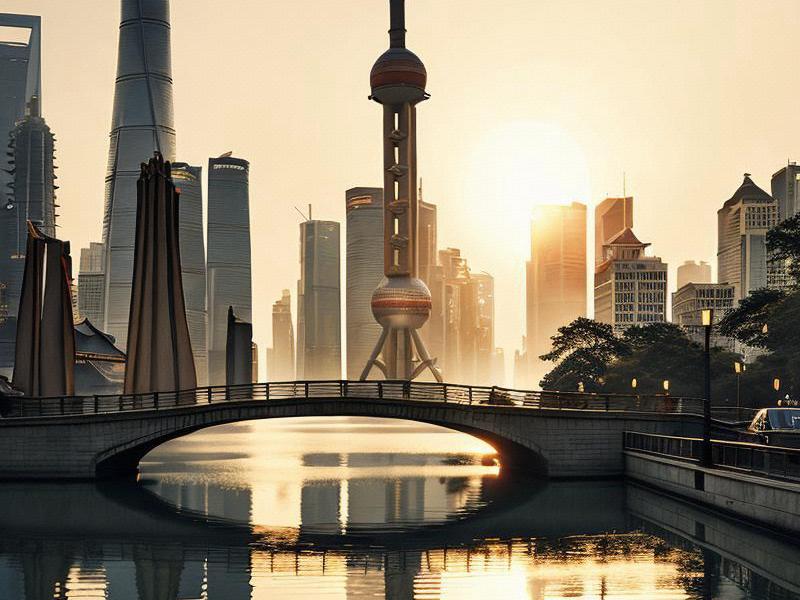This article delves into the multifaceted essence of Shanghai, exploring its pivotal role in China's economic rise, its vibrant cultural scene, and its aspirations as a global city. Shanghai is not just a city; it is a symbol of China's transformation and a beacon for international collaboration.

Nestled along the eastern coast of China, Shanghai stands as a testament to the country's rapid economic development and urbanization. Once a modest fishing village, it has grown into one of the world's most dynamic metropolises, embodying the spirit of modern China. The city's strategic location at the mouth of the Yangtze River has made it a crucial hub for trade and commerce, connecting the vast inland regions of China with the global market.
The economic prowess of Shanghai is undeniable. As one of China's four municipalities directly under the central government, it boasts the country's largest and most developed economy. The city is home to the Shanghai Stock Exchange, one of the world's busiest financial markets, and hosts numerous multinational corporations and international organizations. Its skyline, dominated by iconic skyscrapers like the Oriental Pearl Tower and the Shanghai Tower, is a visual representation of its economic might.
Shanghai's economic success is not solely attributed to its financial sector. The city has also become a leader in innovation and technology. The Zhangjiang Hi-Tech Park, often referred to as "China's Silicon Valley," is a hub for research and development in fields such as biotechnology, information technology, and new materials. This focus on innovation has positioned Shanghai as a key player in the global tech race, attracting talent and investment from around the world.
Beyond its economic achievements, Shanghai is a vibrant cultural melting pot. The city's history is a tapestry woven with influences from various cultures, reflecting its status as a gateway to the world. The Bund, a historic waterfront area, showcases a blend of colonial architecture and modern skyscrapers, offering a glimpse into the city's past and present. The French Concession, with its charming streets and cafes, remains a favorite among locals and tourists alike.
爱上海最新论坛 Cultural exchange is at the heart of Shanghai's identity. The city hosts numerous international festivals and events, including the Shanghai International Film Festival, the Shanghai World Expo, and the Shanghai Fashion Week. These events not only celebrate the city's diverse cultural heritage but also serve as platforms for global collaboration and understanding.
Shanghai's commitment to cultural preservation is evident in its numerous museums and art galleries. The Shanghai Museum, renowned for its extensive collection of Chinese art, attracts millions of visitors each year. The Power Station of Art, a former power plant transformed into a contemporary art museum, showcases cutting-edge exhibitions that challenge conventional notions of art and culture.
As a global city, Shanghai is also a leader in urban development and sustainability. The city has implemented innovative strategies to address challenges such as population growth, environmental protection, and resource management. The Maglev train, the world's fastest commercial high-speed train, connects Shanghai to nearby cities, reducing travel time and promoting regional integration.
Shanghai's green initiatives are equally noteworthy. The city has set ambitious targets to increase green spaces and reduce carbon emissions. The Yu Garden Renovation Project, which restored a historic garden while incorporating sustainable design principles, is a prime example of the city's commitment to preserving its natural beauty. The Shanghai Green Roof Initiative encourages the installation of green roofs on buildings, improving air quality and mitigating the urban heat island effect.
夜上海最新论坛
Education is another area where Shanghai excels. The city is home to some of the best universities in China, including Fudan University and Tongji University, which attract students and researchers from around the world. Shanghai's education system emphasizes innovation and critical thinking, preparing its youth for the challenges of the future.
Tourism is a significant contributor to Shanghai's economy, with millions of visitors drawn to its unique blend of tradition and modernity. The city's landmarks, such as the Nanjing Road shopping district, the Yu Garden, and the Shanghai Tower, offer a glimpse into its rich history and vibrant culture. The Jin Mao Tower and the Shanghai World Financial Center provide breathtaking views of the city from above, while the Shanghai Ocean Aquarium and the Shanghai Disneyland offer entertainment and leisure options for families.
Shanghai's culinary scene is another highlight for visitors. The city is a paradise for food lovers, offering a wide range of cuisines from traditional Shanghai dishes to international flavors. The bustling night markets and street food stalls provide an authentic taste of the city's vibrant food culture, while fine dining establishments cater to the discerning palate.
419上海龙凤网 Despite its rapid development, Shanghai remains committed to preserving its historical and cultural heritage. The city has implemented strict regulations to protect its historic buildings and neighborhoods, ensuring that they coexist harmoniously with modern developments. This balance between tradition and innovation is a hallmark of Shanghai's urban planning philosophy.
Shanghai's aspirations as a global city are evident in its infrastructure projects and international collaborations. The Hongqiao Comprehensive Transportation Hub, a state-of-the-art transportation complex, integrates air, rail, metro, and bus services, making it one of the most efficient transportation systems in the world. The city's deep-water port, the Port of Shanghai, is the busiest container port globally, facilitating trade and economic growth.
Shanghai's international partnerships are further strengthened through its role in global organizations and initiatives. The city is a member of the World Expo Cities Network and has hosted numerous international conferences and summits. Its leadership in areas such as finance, technology, and culture has established Shanghai as a key player on the global stage.
In conclusion, Shanghai is a dynamic metropolis that embodies the spirit of modern China. Its economic prowess, cultural vibrancy, and commitment to sustainability make it a model for urban development and global collaboration. As Shanghai continues to shape the future of China and the world, its story serves as an inspiration for cities around the globe.